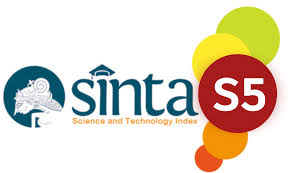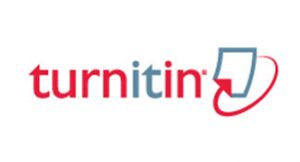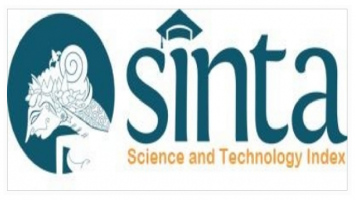EKSISTENSI PEMBELAJARAN BAHASA JAWA BAGI MASYARAKAT JAWA DI ERA REVOLUSI INDUSTRI 5.0
Abstract
The existence of Javanese language learning for Javanese people in the Industrial Revolution 5.0 era is a relevant topic in the context of rapid technological transformation and social change. The Industrial Revolution 5.0 demands the ability to adapt to technological developments based on Artificial Intelligence, the Internet of Things, and Big Data, but also poses major challenges to the preservation of regional culture and languages. This research aims to examine how Javanese language learning remains relevant and is one of the keys to maintaining the cultural identity of Javanese society amidst the rapid flow of globalization. This research uses a qualitative descriptive approach through educational studies, identifying the important role of Javanese as a medium of communication, culture and education in Javanese society, and looking at how digital technology can be used to facilitate Javanese language learning effectively. The research results show that although technology brings challenges in terms of cultural shifts, if used appropriately, technology can be a tool to promote and introduce Javanese to the younger generation, through online platforms, learning applications and social media. Thus, the existence of Javanese language learning in the Industrial Revolution 5.0 era has a very strategic role in maintaining cultural diversity and strengthening the identity of Javanese society in an increasingly connected world.
Keywords
Full Text:
PDFReferences
Afida, Fira Rahmah., Kurnia, Arifatus. (2022). Krisis Eksistensi Bahasa Jawa pada Generasi Alfa: Studi Kasus Peserta Didik SDN Modong Kecamatan Tulangan. Jurnal Primary, 3(2).
Anglin, Gary J. (1991). Instructional Technology. Englewood: Libraries Unlimited.
Darsono, D. (2010). Pengajaran Bahasa Jawa dalam Konteks Pendidikan. Surakarta: Universitas Sebelas Maret Press.
Ellul, Jacques. (2011). Pengertian Teknologi Diperoleh 22 Desember 2024 dari
https://noms-ky.medium.com/filsafat-teknologi-jacques-ellule-167c79cae66
Ersanda, P.A. (2022). Eksistensi Pemikiran John Dewey dalam Pendidikan di Indonesia. Sindang: Jurnal Pendidikan Sejarah dan Kajian Sejarah, 4(2), 134-140.
Mau, et. al (2023). Peningkatan Pengetahuan dan Kemampuan Ibu-ibu Rumah Tangga di Perumahan Bukit Bambe RT 24 Driyorejo Gresik dalam Memdivsersikasi Produk Olahan Makanan Rice Bowl. To Maega: Jurnal Pengabdian Masyarakat, 6(20), 371.
Mualifah, I. (2013). Progresivisme John Dewey dan Pendidikan Partisipatif Perspekstif Pnedidikan Islam. Jurnal Pendidikan Agama Islam, 1(1), 101-102.
Prahastuti, A. (2015.) Pendidikan Bahasa Jawa di Sekolah Dasar: Teori dan Praktik Pembelajaran. Yogyakarta: Pustaka Pelajar.
Romas, W., & Nadlif, A. (2021). The Effectiveness of Online Leraning with Youtube Media on Islamic Religious Education Subjects At Hang Tuah 5 Middel School Sidoarjo. Academia Open, 4. https://doi.org/10.21070/acopen.4.2021.2103
Sarah, S. (2018). Pandangan Filsafat Pragmatis John Dewey dan Implikasinya dalam Pendidikan Fisika. In Prosiding Seminar Nasional Pendidikan Fisika FITK UNSIQ. 1(1).
Sari, Mawar, et al. (2024). Media Pembelajaran Berbasis Digital untuk Meningkatkan Minat Belajar pada Mata Pelajaran Bahasa Indoneisa. Dharmawangsa Journal, 18(1), 205-218. https://journal.dharmawangsa.ac.id/index.php/juwarta/article/view/4266/pdf
Sugiyono. (2019). Metode Penelitian Pendidikan (Kuantitatif, Kualitatif, Kombinasi, R&d dan Penelitian Pendidikan). Alfabeta.
Soepomo, Prof. Dr. (1983). Kebudayaan Jawa: Ajaran dan Pengaruhnya dalam Masyarakat. Ghalia Indonesia.
Suwarna, S. (2013). Metode Pembelajaran Bahasa Jawa: Pendekatan dan Implementasi. Semarang: Universitas Negeri Semarang Press.
Ulfa, Mariam. (2019). Eksistensi Bahasa Daerah di Era Disrupsi. Stilistika: Jurnal Pendidikan Bahasa dan Sastra, 12(2).
Refbacks
- There are currently no refbacks.









